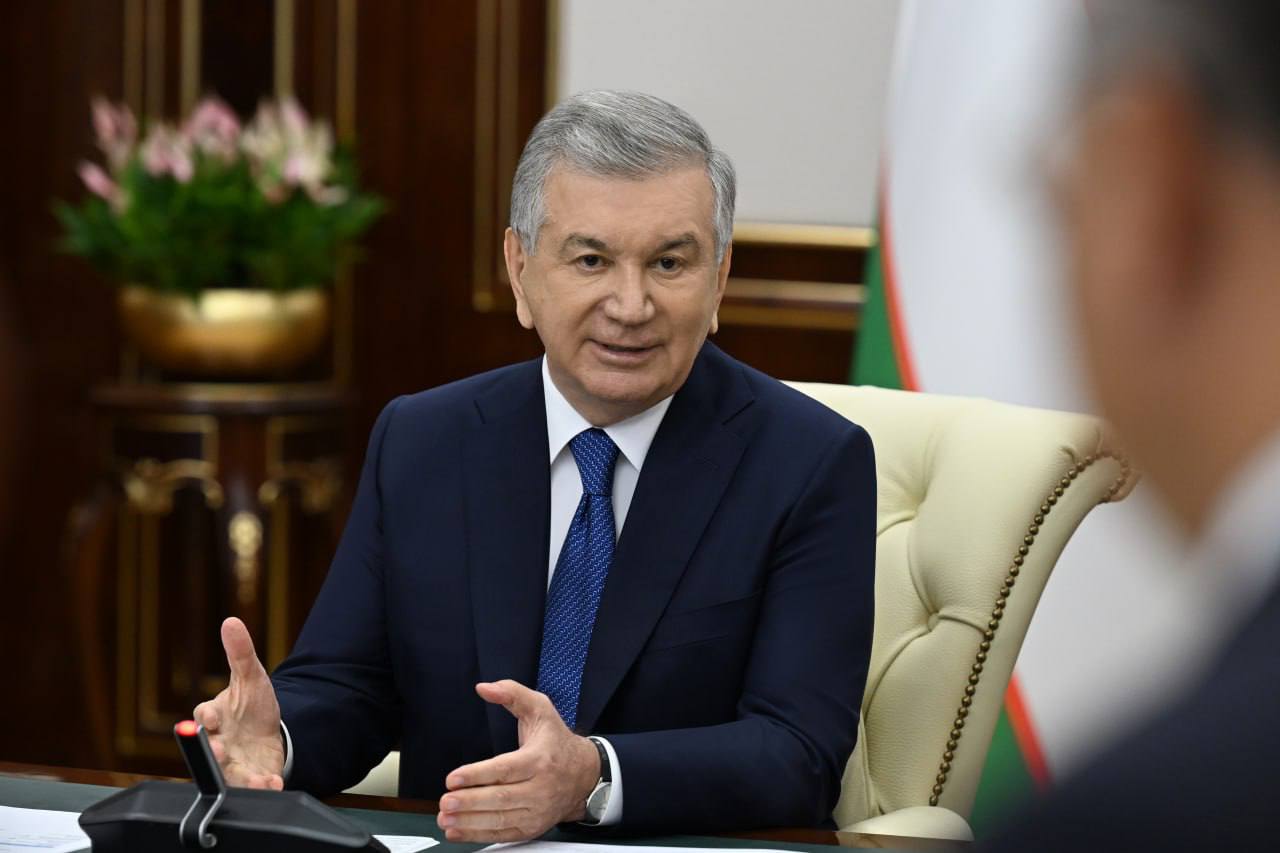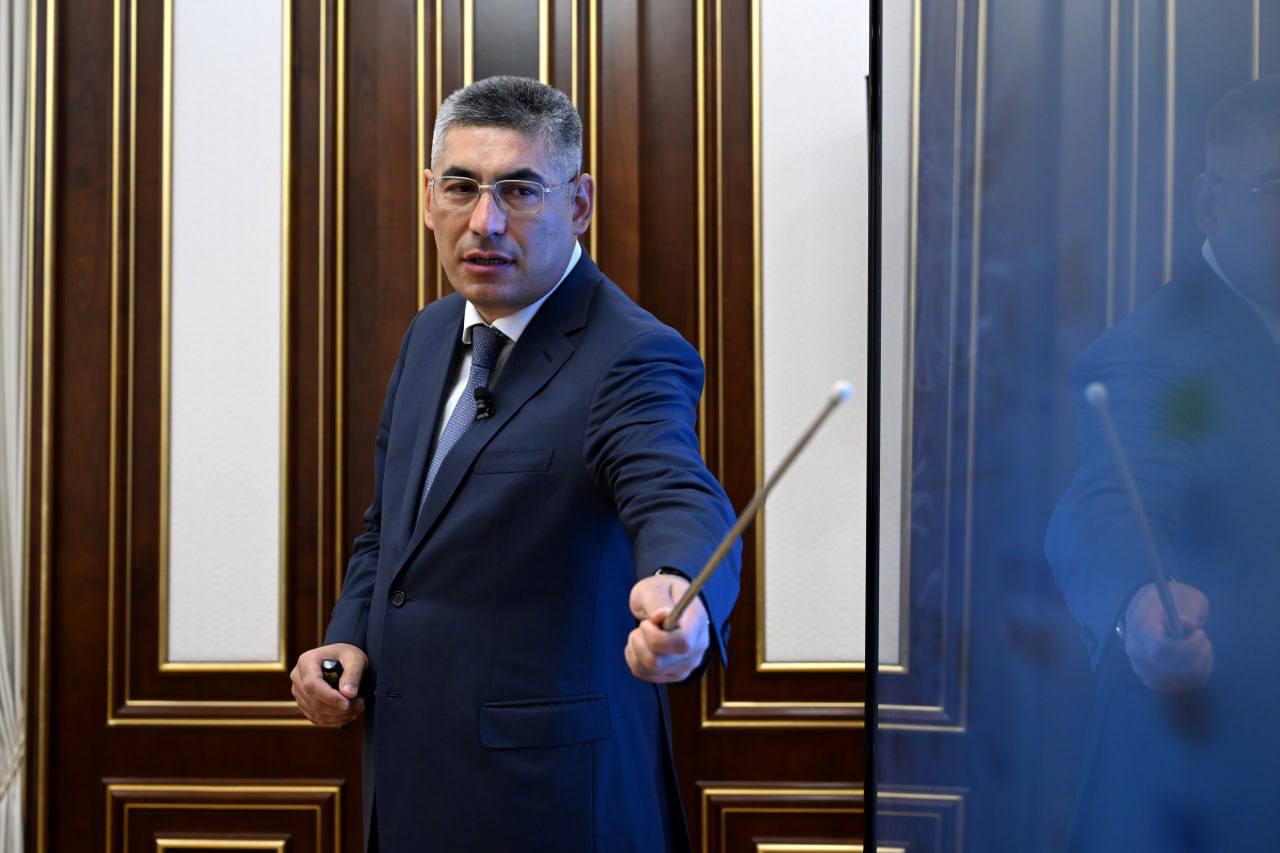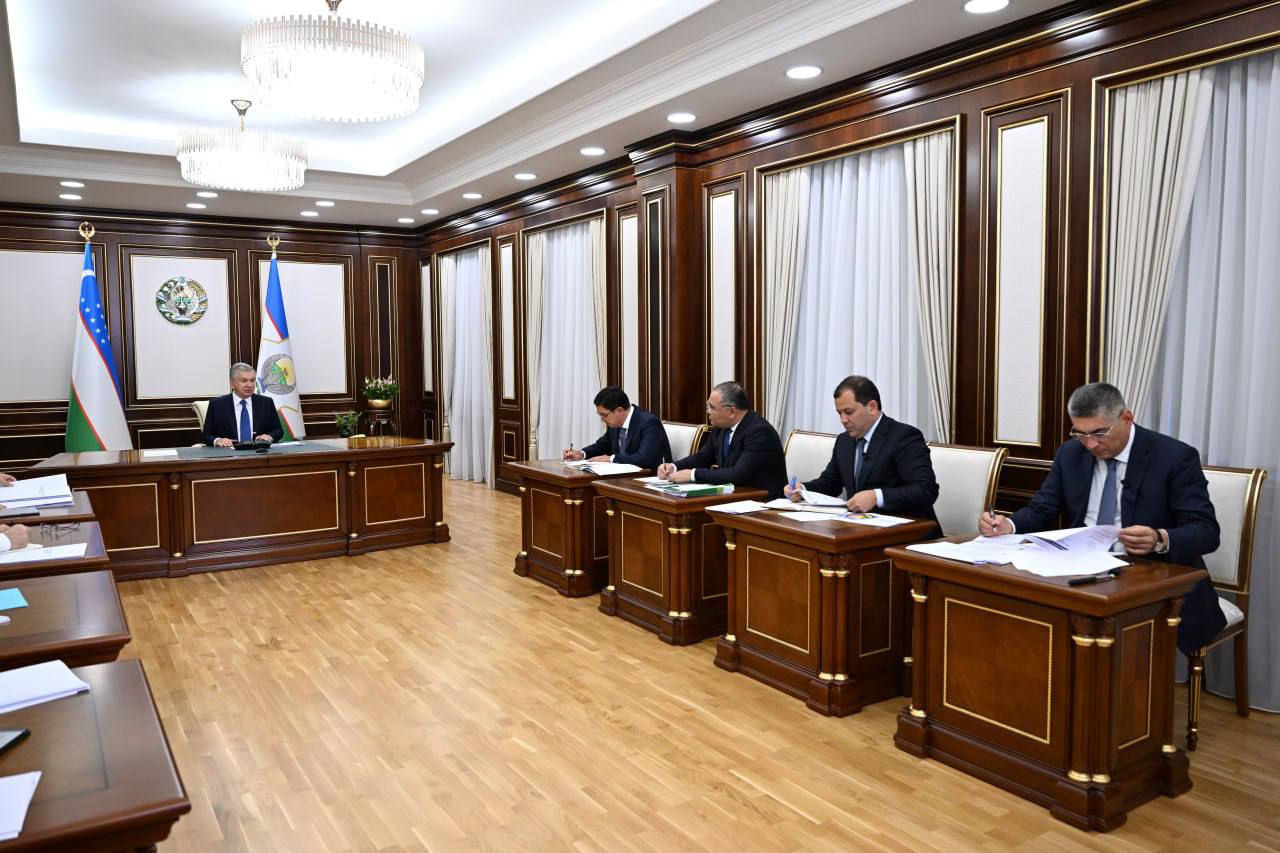
04.09.2025
On September 4, President Shavkat Mirziyoyev reviewed a presentation on measures for creating a value-added chain in agriculture.
In the past years, structural reforms were conducted in agrarian sphere and measures were taken on increasing its effectiveness.
The areas planted with cotton and grain have been reduced and reoriented towards food crops. 160 thousand hectares of new orchards and vineyards have been planted. 1,5 thousand projects in the food production sector have been implemented, with a total value of $1 billion. At the same time, the share of the shadow economy in agriculture remains significant. Not all production is reflected in official reports. Today, the value-added tax rate on food sales is 12 percent.
This issue was raised during an open dialogue between the President of the Republic of Uzbekistan and entrepreneurs. The Head of State instructed the responsible agencies to create more favorable conditions for farmers and dekhkans and reduce the tax burden.
In this regard, proposals have been prepared with the participation of the International Monetary Fund, as well as foreign and local experts, to bring the agricultural sector out of the “shadow”.
According to these proposals, from January 1 next year, farmers and dekhkans will be exempt from value added tax when selling their own products. This exemption will apply to fruit, vegetables, meat, milk, eggs, and other agricultural products, with the exception of cotton and grain.
At the same time, the practice of refunding VAT paid on seeds, fertilizers, fuel, transport, electricity, and other production costs will remain in place. As a result, farmers and dekhkans will have an additional 300 billion soums annually. They will be able to recover another 400 billion soums through a new tax break.
Overall, these measures will encourage transparency in the industry and lay the foundation for an increase in the number of large industrial plantations and agricultural processing enterprises.
The responsible officials have been instructed to explain the new procedure to farmers and dekhkans, ensure its effective implementation, and actively promote food production.





